Introduction to the Recovery Journey
The journey to recovery from addiction or mental health disorders is a profound personal transformation, involving various stages and methodologies. Among the most recognized methodologies is the 12-step recovery program, a structured approach widely used in addiction treatment. This article explores the intricate pathways of recovery, offering insights into the stages, principles, and support systems integral to this process.
The Stages of Addiction Recovery
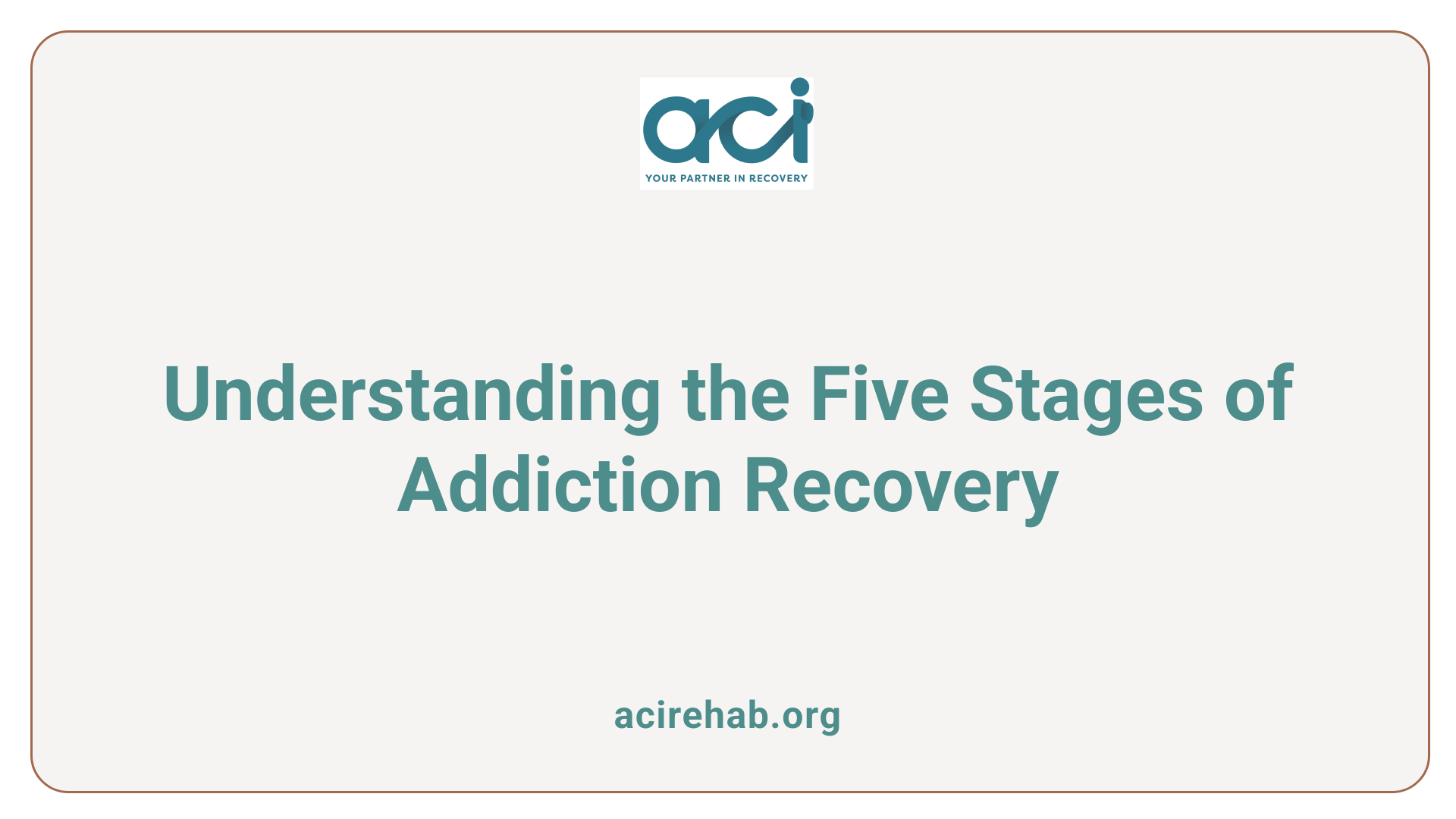
What are the stages of addiction recovery?
The journey through addiction recovery is often structured into five distinct stages: Pre-Contemplation, Contemplation, Preparation, Action, and Maintenance. Each stage reflects the evolving recognition and response to addiction as individuals progress towards recovery.
-
Pre-Contemplation: At this initial stage, individuals often do not acknowledge their addiction. They may refuse to discuss it and might only come to terms with their situation after a significant personal crisis, often referred to as hitting ‘rock bottom’.
-
Contemplation: As individuals move into this stage, they begin to acknowledge their addiction. They weigh the pros and cons of continuing their behavior. However, they might still engage in substance use while contemplating change.
-
Preparation: During this phase, individuals start organizing tangible plans for recovery. This can involve committing to abstinence or aligning support systems, such as scheduling appointments with treatment facilities or rehab programs.
-
Action: This is where the transformation occurs. Individuals take concrete steps to alter their environment and behaviors, often entering treatment programs or engaging in new activities that promote sobriety. This stage often boosts one’s confidence in their ability to recover.
-
Maintenance: After the initial treatment, sustaining recovery becomes the focus. Individuals work on reinforcing their new lifestyle choices and may participate in support groups to help navigate triggers and enhance their coping strategies.
Characteristics of each stage
| Stage | Characteristics | Key Focus |
|---|---|---|
| Pre-Contemplation | Denial of addiction; reluctance to discuss it. | Recognition of the problem. |
| Contemplation | Acknowledgement of addiction; weighing change options. | Assessing consequences. |
| Preparation | Planning for change; arranging treatment or support. | Setting clear intentions. |
| Action | Engagement in treatment; behavior modifications. | Implementing changes and coping strategies. |
| Maintenance | Continuous efforts to sustain recovery; peer interaction. | Long-term sobriety and avoidance of relapse. |
Core Elements of the Recovery Model
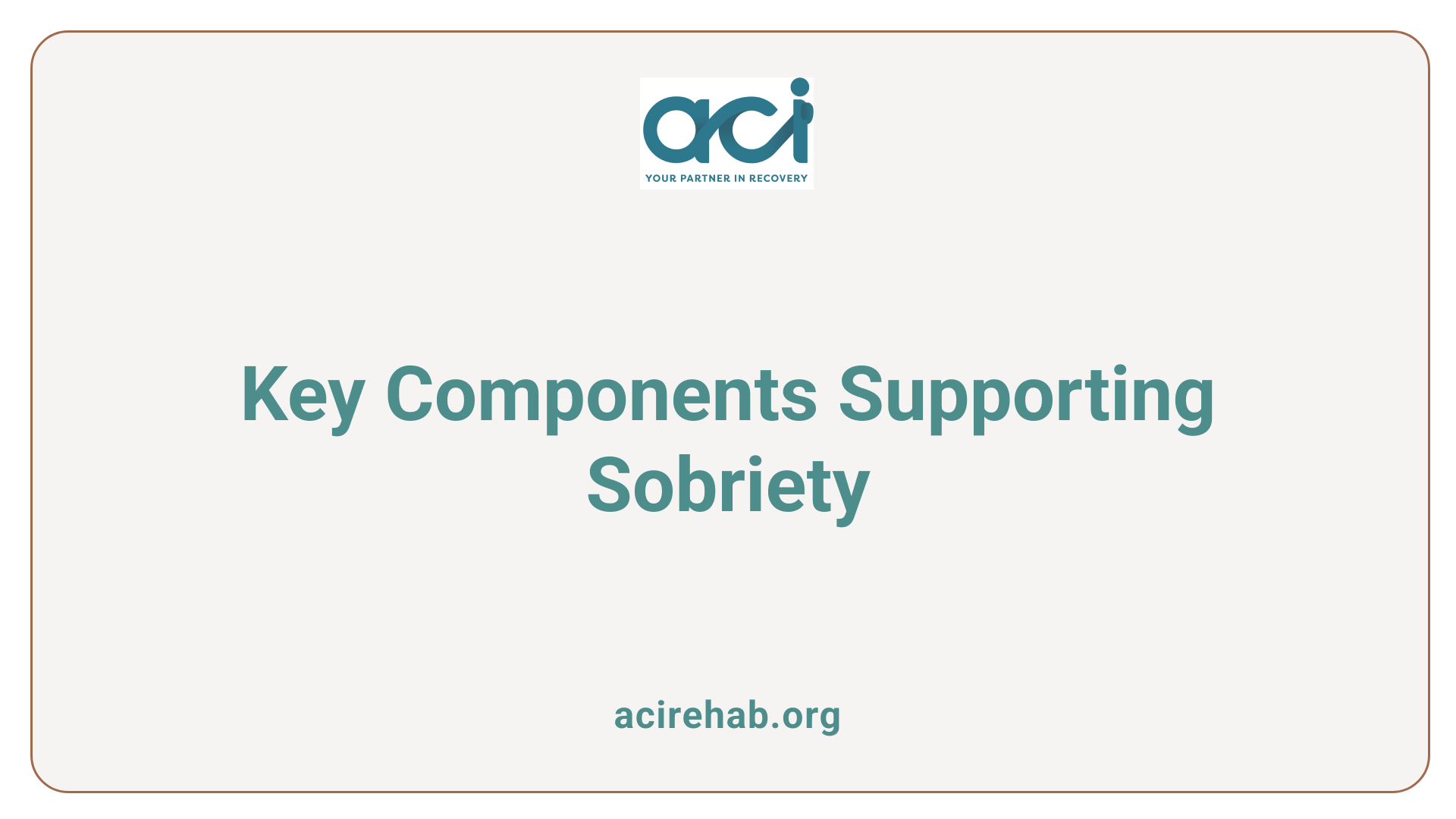
What are the core elements of the recovery model?
The recovery model revolves around several essential elements that work together to support individuals on their journey to sobriety. Key components include:
-
Acceptance and Honesty: Acceptance is the foundation, requiring individuals to recognize that addiction has taken control of their lives. Honest self-reflection is necessary to understand the depth of the problem and the need for help.
-
Commitment: This involves a strong determination to engage in the recovery process. It means committing to the journey of sobriety, even when faced with challenges.
-
Support: Building a support network is critical for recovery. This can include medical professionals, therapists, family, and peers who understand the struggles of addiction and provide encouragement.
-
Personal Growth: Engaging in the recovery process also fosters personal growth. Individuals learn to develop coping strategies and engage in self-improvement, helping them navigate their new sober lives more effectively.
Overall, these elements form a cohesive framework that assists individuals in achieving and maintaining sobriety through acceptance, community support, and a dedication to personal transformation.
Exploring the 12 Steps of Recovery
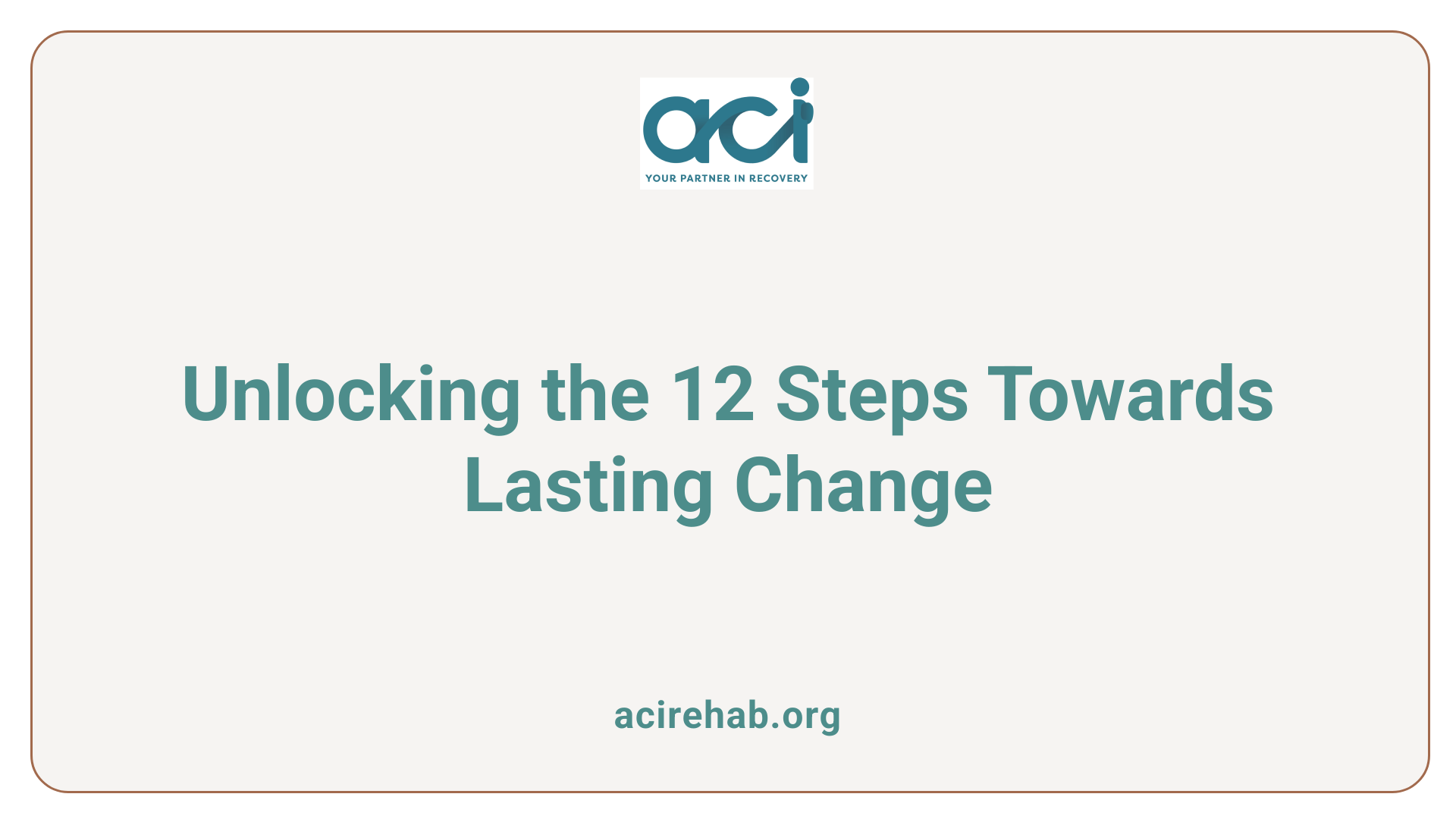
What are the 12 Steps of recovery and how do they work?
The 12 Steps of recovery, originally developed by Alcoholics Anonymous (AA), provide a structured approach to overcoming addiction. This program serves as a lifeline for individuals confronting their substance use challenges.
The first step emphasizes admitting powerlessness over addiction, a crucial acknowledgment that opens the door for change. Following this, individuals are encouraged to develop faith in a higher power to restore their sanity, highlighting the spiritual component of recovery. Step 4 involves a thorough moral inventory of oneself, which promotes self-reflection and accountability.
Additionally, participants are guided to make amends where necessary, creating a pathway to heal relationships that may have been impacted by their addiction. The process culminates in ongoing personal growth, as outlined in Step 12, which encourages individuals to share their recovery journey with others.
Adaptability beyond alcohol addiction
The adaptability of the 12-step program is significant, as it has been applied to various forms of addiction beyond alcohol, including drug abuse, gambling, and even behavioral addictions. Each iteration retains the foundational principles of recognizing powerlessness and seeking support through a community.
Preparation and personalized plans are vital aspects of the recovery journey. Integrated treatment approaches often combine the 12 steps with group therapy, enhancing support with shared experiences of recovery. This multi-faceted approach promotes gradual improvement over perfection, ensuring participants continue learning and growing, regardless of how many times they engage with the steps.
| Step | Description | Importance |
|---|---|---|
| 1 | Admit powerlessness over addiction | Marks the beginning of recovery |
| 2 | Believe in a higher power | Encourages spiritual involvement |
| 3 | Make a decision to turn life over to this power | Initiates deep personal change |
| 4 | Take a moral inventory | Facilitates self-reflection |
| 5 | Admit wrongs to oneself and others | Promotes healing of relationships |
| 12 | Share the recovery message | Fosters community support |
This structure not only assists individuals in navigating recovery but also fosters a sense of belonging and mutual support, making it an enduring choice for many seeking help.
The Role of Family and Community Support
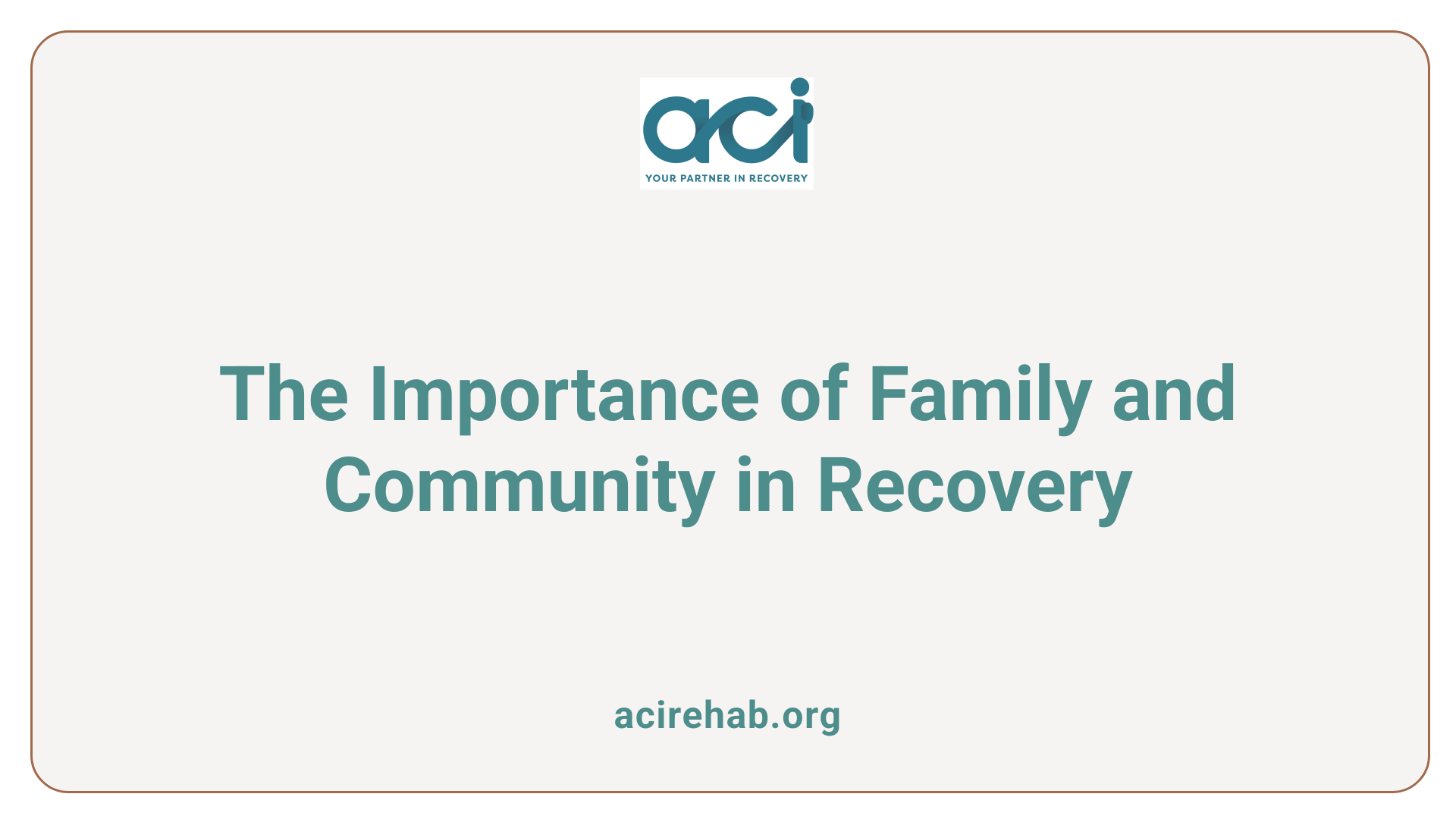
Importance of Family Therapy
Family therapy is a crucial element in the recovery journey from mental illness or substance abuse. It enables family members to engage in the healing process, fostering understanding and communication. Through therapy, individuals can address how addiction affects not just the user but the entire family dynamic, creating a supportive environment conducive to recovery.
Family therapy often helps in rebuilding trust and improving relational skills, which are essential for long-term sobriety. Engaging in family sessions can significantly enhance the emotional and psychological support members provide to each other, which is vital for someone navigating recovery.
Community-Based Support Systems
Community-based support systems like support groups play an integral role in the recovery process. Programs such as Alcoholics Anonymous (AA) provide individuals with a network of peers who understand the challenges associated with addiction. These settings encourage shared experiences, offering a sense of belonging and reducing feelings of isolation.
The combination of family therapy and active participation in community support fosters a comprehensive recovery framework. Together, these elements enhance accountability and provide practical strategies for dealing with triggers and stressors that may arise during recovery.
Integrating Modern Support Services
SAMHSA’s Helpline and Text Services
The Substance Abuse and Mental Health Services Administration (SAMHSA) offers a vital resource through its National Helpline. This confidential, 24/7 service connects individuals and families facing mental health and substance use disorders with appropriate treatment options. People seeking help can simply reach out via phone or utilize the modern text messaging service named HELP4U. By texting their ZIP Code to 435748, users can quickly access local treatment referrals, embodying today’s technological advancements in addiction recovery.
Modern Approaches to Addiction Support
Adapting to contemporary communication methods is essential in addressing addiction issues today. The inclusion of family therapy as a significant tool supports recovery by involving loved ones in the healing process. Additionally, structured programs like the 12-Step model, initially designed for alcoholism, have evolved and can now be tailored for various addictions and mental health challenges.
Leveraging these modern support services and traditional frameworks helps to cultivate a comprehensive approach to recovery, ensuring that individuals are provided with the necessary tools and community connections needed to foster lasting change.
Creating a Personalized Recovery Pathway
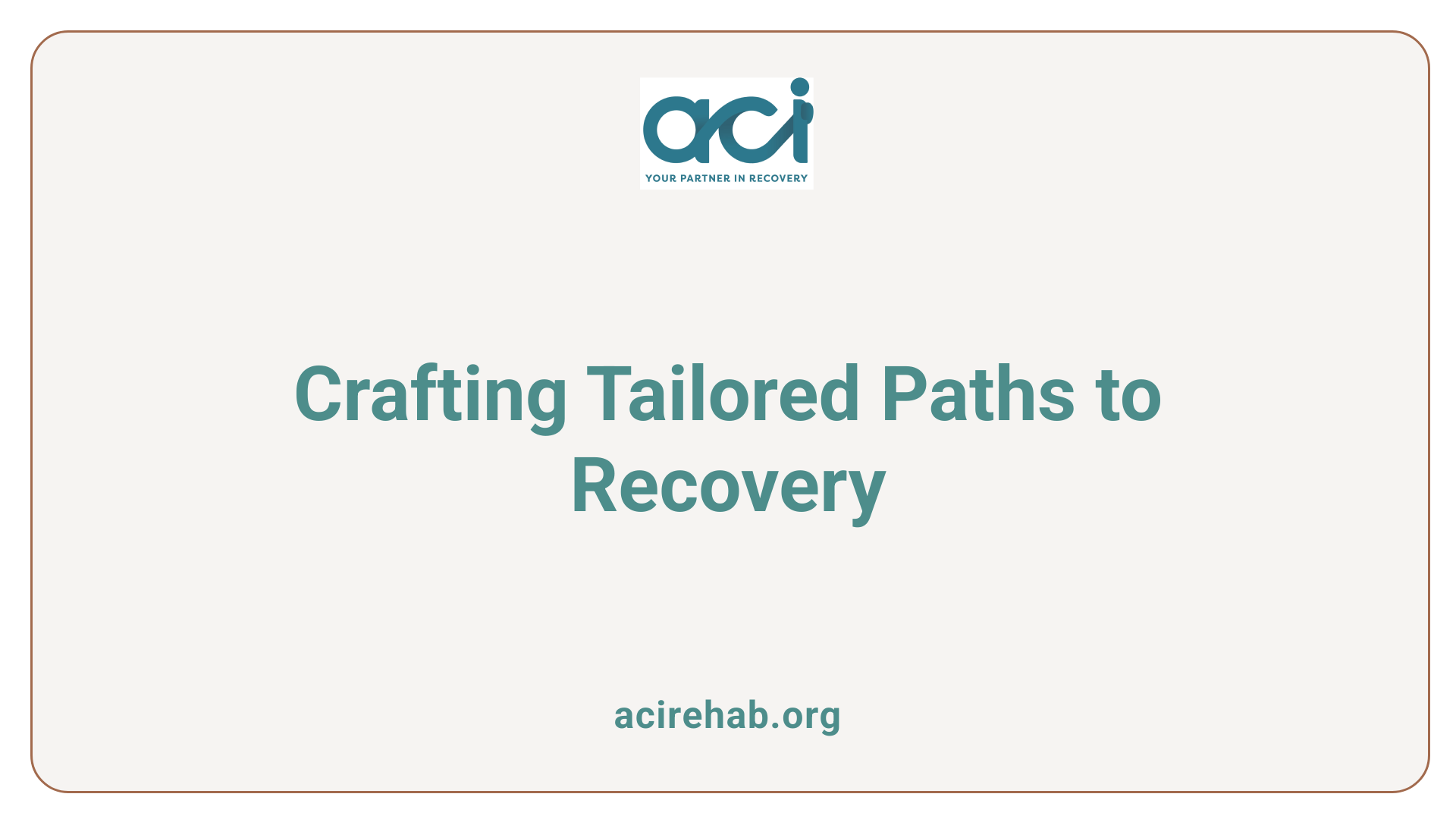
Tailored Treatment Plans by Recovery Centers
Recovery centers emphasize the significance of individualized treatment plans. Each patient’s needs and goals are unique, making personalized strategies critical for effective recovery. For example, Recovery Centers of America (RCA) offers three distinct pathways:
| Pathway Name | Target Group | Description |
|---|---|---|
| Foundations of Recovery Pathway | First-time patients | Offers essential support for those starting their recovery journey. |
| Fresh Start Pathway | Return patients | Tailored for individuals who have undergone treatment previously. |
| Balance Pathway | Individuals with co-occurring conditions | Combines mental health treatment with addiction recovery. |
This tailored approach ensures that treatment aligns with an individual’s experiences and readiness, enhancing the likelihood of successful outcomes.
Medication-Assisted Treatment and Its Benefits
Medication-assisted treatment (MAT) is another significant aspect of personalized recovery pathways. MAT involves using FDA-approved medications to support individuals during detox and throughout the recovery process. The benefits of MAT include:
- Managing Withdrawal Symptoms: Helps reduce discomfort during detoxification.
- Reducing Cravings: Medications can lessen the urge to use substances, aiding in recovery maintenance.
- Preventing Relapse: By stabilizing the individual’s condition, MAT can significantly decrease the chances of reverting to substance use.
Overall, integrating personalized treatment plans with MAT illustrates a comprehensive strategy to support individuals as they navigate the challenging journey of recovery.
Overcoming Challenges and Sustaining Sobriety
Recognizing and Handling Triggers
A vital aspect of maintaining sobriety is understanding and managing triggers. Triggers can be emotional, environmental, or social in nature, often leading individuals back to old habits. Common triggers include:
- People associated with past substance use.
- Places where substances were abused.
- Emotions such as stress, loneliness, or frustration.
Recognizing these triggers is the first step in developing strategies to cope with them. Individuals are encouraged to create a list of their personal triggers and develop an action plan to avoid or address them effectively. Techniques such as mindfulness, deep breathing, or engaging in supportive relationships can mitigate the impact of triggers, ensuring a proactive approach to sobriety.
Building New Routines and Coping Strategies
Creating new, healthy routines plays a crucial role in sustaining sobriety. These routines can help replace the time previously spent on substance use with productive activities.
Here are some strategies for building a supportive structure:
- Set daily goals to enhance motivation and focus on recovery.
- Engage in physical activities such as exercise or sports to improve mental health and promote well-being.
- Join support groups to connect with others who understand the recovery journey.
Implementing these changes fosters an environment conducive to sobriety. By continually reinforcing good habits, individuals can better manage their recovery and enhance their overall quality of life.
Concluding Thoughts on Recovery
Recovery from addiction or mental health challenges is a journey characterized by personal growth, community support, and structured methodologies like the 12-step program. Understanding the stages of recovery and accessing available resources is essential for individuals and families navigating this path. Emphasizing acceptance, commitment, and the importance of a supportive network can foster an environment conducive to lasting sobriety and mental well-being.
References
- National Helpline for Mental Health, Drug, Alcohol Issues – SAMHSA
- What Are the 12 Steps of Recovery?
- The Twelve Steps – Alcoholics Anonymous
- Steps to Recovery | Harm Reduction
- 12-Step Programs for Drug & Alcohol Addiction – Adcare.com
- 12 Steps to sobriety…and the 12 after that – Rosecrance
- Twelve-step program – Wikipedia
- 12 Step Program for Addiction: Types & Benefits – Banner Health
- The Addiction Recovery Journey in 9 Steps – DrugAbuse.com

